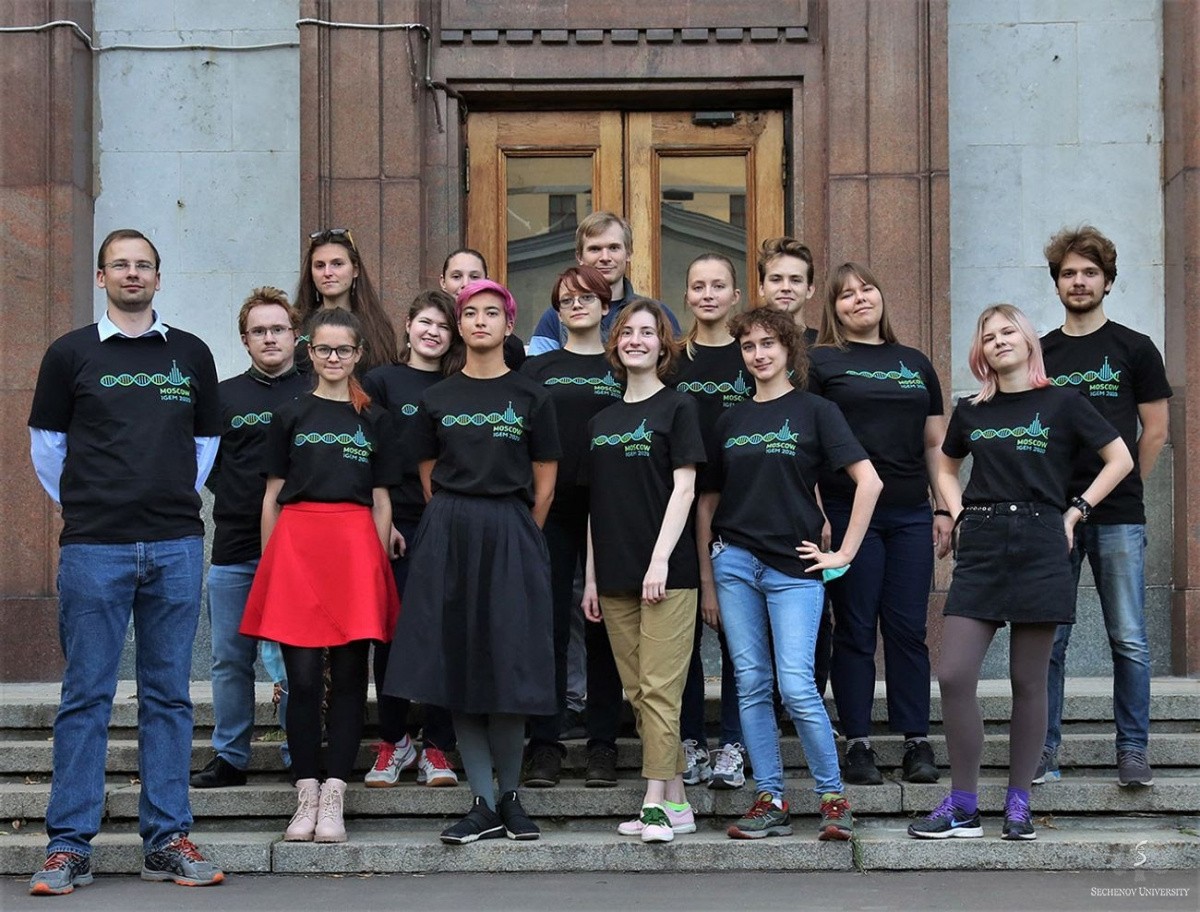Moscow students receive award at iGEM 2020

The team of young bioengineers from several universities including Sechenov has been awarded a gold medal at the competition which took place online. Their project focused on the identification of genetic variants of the hepatitis C virus.
The student team from Lomonosov Moscow State University, Sechenov University, and Tianjin University (China) has received a gold medal at iGEM 2020, a prestigious international annual competition in bioengineering. The closing award ceremony was held online on 22 November 2020. This is the first-ever iGEM gold medal awarded to a team from Moscow, and the second — to a team from Russia.
The Moscow team presented a project which focused on the detection of various genotypes of RNA viruses, in particular, the hepatitis C virus (HCV). HCV is a small, enveloped, single-stranded RNA virus which is the causative agent of hepatitis C and some cancers — such as hepatocellular carcinoma and lymphomas.
HCV genotyping is crucial for understanding the epidemiology and choosing the appropriate therapy. For example, the virus variant RF2k/1b — which has a high prevalence in Russia but is not as common in other parts of the world — is often mistakenly identified as genotype 1b. A reliable detection method is very important in this case — to distinguish between virus variants. For this purpose, the student team decided to use the CRISPR/Cas technology with a recently discovered small protein CasX (Cas12e). The detection pipeline consists of several steps: sample collection (venous blood), extraction of viral RNA, amplification by RT-LAMP, and detection of target sequences by CasX. More information is available on the project’s website.
The iGEM Moscow team was supervised by a number of leading scientists, including Nikolay Briko, Head of the Department of Epidemiology and Evidence-Based Medicine (Sechenov University) and Chief Epidemiologist at Russia’s Ministry of Health, and Elena Krasilnikova, Head of the Centre for Study and Analysis of Population, Demography, and Health Problems at the Institute of the Eurasian Economic Union.
The International Genetically Engineered Machine (iGEM) Foundation is an independent, non-profit organisation dedicated to the advancement of synthetic biology, founded in 2003 at the Massachusetts Institute of Technology (MIT). Since then, the iGEM Competition has become an important event where students from all over the world can push the boundaries of synthetic biology by addressing the problems of humanity using genetic engineering methods.
Since its inception, almost 47,000 people — and 2,700 teams — have taken part in the iGEM Competition. In 2020, more than 250 teams have participated in the event.
